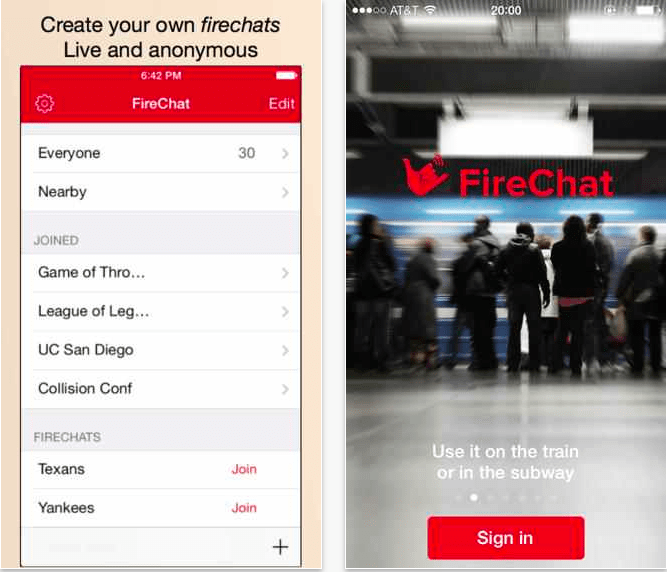
FireChat, the peer-to-peer messaging app that works even without Internet connection or mobile coverage, was downloaded in large numbers in Iraq as the government began blocking news and social media sites in response to a terror threat from extremist Sunni militants ISIS. According to The Guardian, the app was downloaded by 40,000 users in one weekend this month after the Iraqi government started targeting social media services like Facebook and Twitter to prevent ISIS from generating public support through the Internet. Before the surge, the app had only been downloaded a total of 6,600 times in the country.
The spike transpired in spite of Iraq not having its own app store. Firechat, which was launched last March, takes advantage of Bluetooth and Wi-Fi capabilities of mobile devices to connect one phone to another. When there are enough connections, a mesh is created, which allows users to text other phones within the network.
“Your phone today, your smartphone, not only has a radio to connect to a cell tower, but it also has other radios like Wi-Fi or Bluetooth, to connect to other devices around,” Micha Benoliel, the co-founder of Firechat developer Open Garden, Inc., told The Guardian. “And when smartphones are next to each other with Firechat, they directly interconnect.”
Earlier this week, a new version the app, called FireChat <3 (FireChat Love) was launched, which expands the app’s mesh network through iOS and Android mobile devices. In an interview with Bloomberg, Open Garden Vice President of Sales and Marketing Christophe Daligault said that Iraqi iPhone users probably used VPNs to trick the Apple App Store into thinking they were somewhere else.
On June 15, Iraq’s Ministry of Communications ordered ISPs to block Facebook, Twitter, YouTube, Whatsapp, and Instagram. The Iraqi government is also attempting to completely block Internet services in ISIS strongholds such as Nineveh province and Anbar province.


